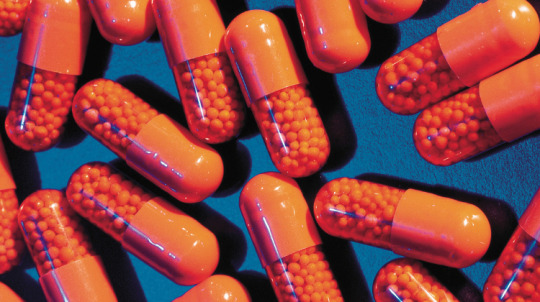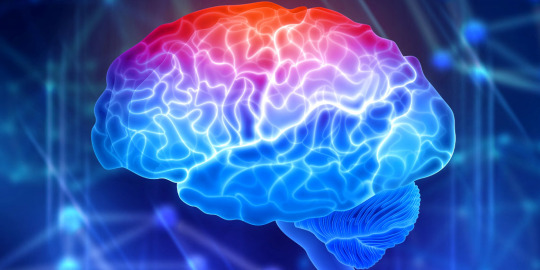#Tips for healthy kidney function
Explore tagged Tumblr posts
Text
How Can You Keep Your Kidneys Healthy?
This article is originally published on Freedom from Diabetes website, available here. Everyone know this, how kidney is the most important part of our body. It located at the bottom of the rib cage. It filtering waste and excess fluids from your blood, helping to maintain your overall health.

Kidney disease, if it develops, can lead to serious health complications making things challenging to manage. But no need to worry about this, you can take proactive steps to promote healthy kidneys throughout your life by adopting and maintaining good habits. In this blog I will explain key practices to keep your kidneys functioning optimally.
Always stay hydrated You have to stay hydrated which is good for your kidney health. You have to drink enough water, so it will helps your kidneys flush out toxins and waste products.
Maintain a Balanced Diet You have to be more careful about your diet. Your diet should include nutrient-rich foods, inlcude fruits, vegetables, grains, lean proteins, and healthy fats. etc
Monitor Your Blood Pressure You should maintain blood pressure level in control. Becuase high blood pressure not good for kidney. So regular check your blood pressure level.
Manage Diabetes Diabetes is another major risk factor for kidney disease. If you have diabetes, it's essential to manage your blood sugar levels carefully.
Avoid Overuse of Pain Medications Certain over-the-counter pain medications, like non-steroidal anti-inflammatory drugs (NSAIDs), can harm your kidneys if used excessively.
Regular Exercise Regular Exercise and physical activity supports overall health and can help prevent kidney disease. Exercise improves circulation, promotes heart health, and helps maintain a healthy weight, reducing the risk of kidney problems.
Your kidneys are essential organs that deserve attention and care. By adopting these good habits and maintaining a healthy lifestyle, you can reduce your risk of kidney disease and support the longevity and function of these vital organs. To read more about this, please visit our Article. Also please connect with me on my website, Facebook page, and YouTube if you want to stay in touch or give me any feedback!
#Tips for healthy kidney#Tips for healthy kidney function#Food for healthy kidney#Healthy kidney signs#Blood Pressure and Kidneys#Balanced Diet for Kidney Health#Stay Hydrated for Kidneys#Diabetes and Kidney Care#Exercise for Kidney Health#Kidney Function Management#Kidney Disease Prevention#Kidney-Friendly Diet#Kidney Health Practices
0 notes
Text

Good Habits for Healthy Kidneys
Kidneys play a vital role in filtering waste and excess fluids from your blood, helping to maintain your overall health. Kidney disease, if it develops, can lead to serious health complications making things challenging to manage. In this article, we'll explore some key practices to keep your kidneys functioning optimally.
Read more: https://www.freedomfromdiabetes.org/blog/post/maintaining-good-habits-for-healthy-kidneys/3577
#tips for healthy kidney#tips for healthy kidney function#food for healthy kidney#healthy kidney#healthy kidney signs#how to healthy kidney#symptoms of healthy kidney#how to have a healthy kidney#how to keep a healthy kidney
0 notes
Text

Discover the importance of hydration for urinary health and find out how much water you really need. Expert tips on maintaining optimal urinary health.
Do Visit: https://www.healixhospitals.com/blogs/the-importance-of-hydration-for-urinary-health:-how-much-water-do-you-really-need
#Hydration for Urinary Health#Hydration and urinary health#Water intake for urinary health#Importance of water for bladder health#Drinking water and urinary tract health#Hydration and kidney function#Optimal water intake for urinary health#Water consumption and urinary system#Dehydration and urinary problems#Daily water requirement for urinary health#Hydration tips for urinary tract health#Water and urinary tract infections#Benefits of staying hydrated for bladder health#Hydration guidelines for urinary wellness#Impact of water intake on urinary health#Hydration strategies for a healthy bladder
1 note
·
View note
Video
youtube
Top 3 EXPERT TIPS for Optimal Kidney Health | Keep Your Kidneys Happy an...
#youtube#Tags: kidney health healthy kidneys kidney function kidney-friendly diet hydration tips kidney disease prevention kidney-friendly lifestyle
1 note
·
View note
Text
YOU! Stop there! Is your cat getting enough water?
Cats can be extremely finicky (as everyone who has one around knows) and it's so important to make sure they get enough water. Cats were essentially desert/survival animals before they decided to just vibe in our homes, so they can be prone to not drinking much just overall, but they still need to!
I've spent a lot of time with trial and error- and here's some things I wanted to share about making sure they drink enough, to have healthy kidneys, bladders, and overall all their organ functions!
TRY:
-Testing lots of materials for their drinking bowls! My cats aren't fans of classics like; Stainless Steel, Ceramic, or Plastic, and won't drink out of them. What worked for me, is a transparent glass cookware pan! I have to use a heavy, clear glass device, or my cats will throw the bowl in REJECTION. Try out different things!
-MOVE THE BOWL ACROSS THE HOME. Cats do NOT like their water beside their food- At least any cat I've had! Move it somewhere water runs anyway, and they know about it, such as the bathroom! They are happy to see me use running water every morning from the bathroom where it's always running, and they don't like it beside their food.
-Don't rely on fads. Running water fountains noise making have just scared my cats off- and they don't enjoy them. Your cat may love them, but make sure to evaluate if you ever actually see your cats drinking from things like this. (also they scare me as fire starters!)
-Try letting your cat drink from other places to see where he likes it best. Water somehow tastes different from different faucets, see which one they like the best!
-Try gravy/wet soft foods. My cats love gravy the MOST, and it's essentially their treat each night (Because casual treats and catnip make them aggressive yikes) but I appreciate it, because of its water content! I know they're still getting another liquid in their diet.
Keeping your cat, and yourself hydrated, is SO important! Please make sure they're drinking, give them fresh water daily and all that they desire. Likewise: Make sure your cat isn't incessantly chugging water non-stop, because that could sign a different underlying issue! Take care of your pets 💕
(If your dog has trouble drinking water idk any tips my dog is a water chugging machine. I had to get her a like Hamster Bottle type of water bottle bc she throws bowls everywhere if that helps LOL)
#try things! consult the internet too bc im sure there's plenty more resources#cats#cat#animals#pets#pet care#dogs#pet health#cat health#cat help#feel free to add on
8 notes
·
View notes
Text
Toxicity Risks of Common Supplements: Exploring the Dark Side of Overdosing

Supplements can be a great way to boost your health and well-being, but it's important to take them safely and responsibly. Too much of a good thing can be harmful, and certain supplements can be toxic if taken in excess.
Vitamin A
Vitamin A is an essential nutrient that plays a role in vision, immune function, and cell growth and development. However, excessive intake of vitamin A supplements can be toxic. Symptoms of vitamin A toxicity can include nausea, vomiting, dizziness, headache, and blurred vision. In severe cases, vitamin A toxicity can damage the liver and other organs.

Iron
Iron is an essential mineral that is necessary for the production of hemoglobin, which carries oxygen in the blood. However, too much iron can be harmful. Symptoms of iron overdose can include nausea, vomiting, diarrhea, abdominal pain, and constipation. In severe cases, iron overdose can damage the liver, heart, and other organs.
Selenium
Selenium is an essential trace mineral that has antioxidant properties. However, excessive intake of selenium supplements can lead to selenosis, a condition characterized by hair loss, skin rash, and digestive problems. In severe cases, selenosis can cause neurological problems and even death.

Vitamin D
Vitamin D is an essential nutrient that is important for bone health and immune function. However, excessive intake of vitamin D supplements can lead to hypercalcemia, a condition characterized by high levels of calcium in the blood. Symptoms of hypercalcemia can include nausea, vomiting, weakness, constipation, and kidney problems.
Other supplements
In addition to the supplements listed above, there are a number of other supplements that can be harmful if taken in excess. For example, high doses of zinc supplements can interfere with copper absorption and cause anemia. High doses of omega-3 fatty acid supplements can increase the risk of bleeding. And high doses of herbal supplements, such as ephedra and kava, can cause serious side effects, including heart problems and seizures.

Safety tips
To avoid the potential dangers of excessive supplement intake, it is important to follow recommended dosage guidelines and consult with a healthcare professional before starting any new supplements. Here are some additional safety tips:
• Read the supplement label carefully and follow the dosage instructions.
• Be aware of the potential side effects of the supplements you are taking.
• Tell your healthcare professional about all of the supplements you are taking, including herbal supplements and over-the-counter medications.
• Avoid taking supplements if you are pregnant or breastfeeding, unless directed to do so by your healthcare professional.
Supplements can provide benefits when taken in appropriate doses. However, it is important to be aware of the potential dangers of excessive supplement intake. By following the safety tips above, you can help to ensure safe and effective usage of supplements.
Supplement Overdose: What You Need to Know to Stay Safe

We all strive to live healthy lives and often turn to supplements to support our well-being. While these products can offer benefits when taken responsibly, it's crucial to understand that even natural or herbal supplements can pose risks if consumed in excessive amounts. In this article, we'll explore what you need to know about supplement overdose and how to handle such situations.
1. Recognizing the Signs:
Identifying a supplement overdose can be challenging, as symptoms can vary depending on the specific supplement and dosage. However, some common signs to look out for include nausea, vomiting, dizziness, rapid heartbeat, confusion, and difficulty breathing. If you or someone you know experiences these symptoms after taking supplements, it's essential to act quickly.
2. Seek Immediate Medical Help:
If you suspect a supplement overdose, don't hesitate to call emergency services or rush to the nearest emergency room. Prompt medical attention is crucial in such situations. While waiting for professional help, try to keep the affected person calm and monitor their vital signs if possible.
3. Provide Information:
When seeking medical help, provide accurate information about the supplements ingested, including the brand name, dosage, and any other medications being taken. This information will assist healthcare professionals in providing the appropriate treatment.

4. Avoid Self-Remedies:
It's crucial not to take matters into your own hands by inducing vomiting or administering any substances without medical guidance. Incorrect interventions can potentially worsen the situation or lead to complications. Trust the expertise of healthcare professionals to guide you through the necessary steps.
5. Prevention Is Key:
Preventing supplement overdose is always better than dealing with its consequences. Here are some tips to keep in mind:
a. Consult a Healthcare Professional: Before starting any new supplement regimen, consult with a healthcare professional who can assess your specific needs and recommend appropriate dosages.
b. Follow Recommended Dosages: Always adhere to the recommended dosages provided on the supplement packaging or as advised by a healthcare professional. More is not necessarily better when it comes to supplements.
c. Be Mindful of Combinations: If you're taking multiple supplements or medications, be aware of potential interactions. Some combinations can lead to adverse effects or decrease the effectiveness of certain substances.
d. Store Supplements Safely: Keep supplements out of reach of children and in a cool, dry place as directed on the packaging. This helps maintain their potency and prevents accidental ingestion.
Supplements can be beneficial when used responsibly, but it's crucial to understand the risks of overdose. If you suspect a supplement overdose, seek immediate medical help and provide accurate information to healthcare professionals. Remember, prevention is key, so consult with a healthcare professional, follow recommended dosages, be mindful of combinations, and store supplements safely. By being informed and cautious, you can make informed choices about your well-being and enjoy the benefits of supplements without compromising your health.
3 notes
·
View notes
Text
Kidney Diseases in Children - What Parents Need to Know

Kidney diseases are not just limited to adults; children can also be affected. As a parent or caregiver, it's essential to understand these conditions, recognize potential signs, and be prepared to navigate the challenges that come with pediatric kidney issues. In this article, we will shed light on kidney diseases in children, common pediatric kidney problems, early warning signs, and the necessary steps for parents and caregivers.
Understanding Pediatric Kidney Diseases
1. The Scope: Kidney diseases in children can encompass a wide range of conditions, from congenital anomalies to acquired diseases. These conditions may affect the structure or function of the kidneys, impacting their ability to filter waste and regulate fluids.
2. Congenital Kidney Conditions: Understanding congenital kidney issues in children is crucial for early detection and intervention. Some children are born with kidney issues, such as congenital anomalies like hydronephrosis, polycystic kidney disease, or renal agenesis. Hiranandani Hospital Kidney plays a significant role in providing specialized care and treatment for these conditions, ensuring that affected children receive the necessary medical attention and support for improved health outcomes.
3. Acquired Kidney Diseases: Children can also develop kidney diseases later in life due to infections, autoimmune disorders, or other underlying medical conditions. Early diagnosis and treatment are vital for managing these acquired conditions.
Early Warning Signs
1. Urinary Changes: Keep an eye out for changes in your child's urinary habits. Frequent urination, painful urination, or bedwetting beyond a certain age can be indicators of kidney issues.
2. Swelling: Noticeable swelling in the face, limbs, or abdomen may be a sign of kidney problems, as impaired kidney function can lead to fluid retention.
3. High Blood Pressure: Hypertension is not exclusive to adults. Elevated blood pressure in children can sometimes point to underlying kidney issues.
4. Growth and Development: Poor growth or delayed development could be attributed to chronic kidney disease, affecting the body's ability to absorb essential nutrients.
5. Fatigue and Anemia: Kidney problems may cause anemia and fatigue, as the kidneys play a role in producing erythropoietin, a hormone that stimulates red blood cell production.
.
Read For More Blog: Causes and Treatments for Acne and Prevention Tips
Navigating Pediatric Kidney Care
1. Timely Consultation: If you notice any warning signs, consult a pediatric nephrologist promptly. Early diagnosis and intervention can significantly improve outcomes.
2. Diagnostic Tests: Your child may undergo various tests, including blood work, urinalysis, imaging studies, and kidney biopsies, to determine the nature and extent of kidney disease.
3. Treatment Approaches: Treatment will depend on the specific kidney condition. It might involve medications, dietary changes, or even dialysis in severe cases. Some children may require a kidney transplant.
4. Emotional Support: Pediatric kidney diseases can be emotionally challenging for children and their families. Seek emotional support through counseling or support groups to help your child cope.
5. Monitoring and Follow-up: Regular follow-up appointments and ongoing monitoring are crucial to ensure the effectiveness of treatment and the overall well-being of the child.
Conclusion
Kidney diseases in children may present unique challenges, but with awareness, early detection, and timely intervention, the prognosis can be positive. As a parent or caregiver, your vigilance is key to safeguarding your child's kidney health. At Hiranandani Hospital Powai we are here to support you through this journey, providing expert care and guidance for pediatric kidney issues. Your child's health is our priority, and we are dedicated to helping them lead a healthy, kidney-empowered life.
#hiranandani hospital reviews#hiranandani hospital powai covid#hiranandani powai hospital#hiranandani hospital powai
2 notes
·
View notes
Text
Diabetes and Kidney Disease: The Connection and How to Protect Your Kidneys

Looking for a doctor near you in Brooklyn 11213 to help you manage your diabetes and kidney disease?
Visit Prasad Medical Center, where our team of experts will work with you to develop a personalized treatment plan to help you control your blood sugar levels, protect your kidneys, and improve your overall health.
Introduction:
Diabetes is a chronic health condition that affects how your body turns food into energy.
When you have diabetes, your body either resists the effects of insulin—a hormone that regulates the movement of sugar into your cells—or doesn’t produce enough insulin to maintain normal glucose levels.
Over time, high blood sugar can damage many parts of your body, including your kidneys.
Diabetic kidney disease, also known as diabetic nephropathy, is a common complication of diabetes.
It occurs when high blood sugar damages the tiny blood vessels in your kidneys, making it difficult for them to filter waste products from your blood.
If diabetic kidney disease is not treated, it can lead to kidney failure, a serious condition that requires dialysis or a kidney transplant.
You can reach our dialysis centers in Brooklyn in these places
What happens to your kidneys when you have diabetes?
When you have diabetes, high blood sugar can damage the tiny blood vessels in your kidneys.
This damage can make it difficult for your kidneys to filter waste products from your blood.
Over time, as the blood vessels in your kidneys become more damaged, your kidneys may not be able to function as well as they should.
This can lead to a buildup of waste products in your blood, which can cause a variety of health problems, including:
High blood pressure
Fluid retention
Anemia
Weakness and fatigue
Bone disease
Heart disease
Stroke
Kidney failure

How to protect your kidneys if you have diabetes:
The best way to protect your kidneys if you have diabetes is to control your blood sugar levels. You can do this by following your treatment plan, which may include taking medication, eating a healthy diet, and exercising regularly.
Know more about: OUR SPECIALIZED TREATMENTS - NEPHROLOGY
Here are some other tips for protecting your kidneys:
Monitor your blood pressure regularly: High blood pressure can damage your kidneys even further, so it’s important to monitor your blood pressure regularly and work with your doctor to keep it under control.
Maintain a healthy weight: Obesity is a risk factor for both diabetes and kidney disease. If you are overweight or obese, losing weight can help improve your blood sugar levels and reduce your risk of kidney disease.
Eat a healthy diet: A healthy diet for people with diabetes and kidney disease is low in saturated and trans fats, sodium, and sugar. It is also high in fruits, vegetables, and whole grains.
Exercise regularly: Exercise can help improve your blood sugar levels, blood pressure, and overall health. Aim for at least 30 minutes of moderate-intensity exercise most days of the week.
Don’t smoke: Smoking damages your blood vessels and can make kidney disease worse. If you smoke, talk to your doctor about quitting.
When to see a doctor:
If you have diabetes, it is important to see your doctor regularly for checkups and kidney function tests. This is especially important if you have any of the following symptoms:
Swelling in your feet, ankles, or hands
Fatigue
High blood pressure
Blood or protein in your urine
Changes in urination
If you have any of these symptoms, your doctor may refer you to a nephrologist, a specialist in kidney diseases in Brooklyn.
Finding the best doctor near you in Brooklyn:
If you are looking for a doctor in Brooklyn to help you manage your diabetes and kidney disease, there are a few things you can do to find the best doctor near you:
Ask your primary care physician for a referral
Search for doctors in your area who specialize in diabetes and/or kidney disease
Read online reviews of doctors in your area.
Talk to your friends and family members who have diabetes and/or kidney disease to see who they recommend.
Once you have found a few doctors that you are interested in, you can schedule a consultation to learn more about their approach to treating diabetes and kidney disease.
Conclusion:
Diabetes and kidney disease are serious conditions, but they can be managed with proper care. By following your treatment plan, eating a healthy diet, and exercising regularly, you can help protect your kidneys and live a long and healthy life.
If you are looking for a doctor to help you manage your diabetes and kidney disease, there are a few things you can do to find the best doctor near you in Brooklyn.
#best doctor in brooklyn#doctors near brooklyn#best neurologist doctor in new york#clinic near me brooklyn#doctors near new york ny#the best neurologist in brooklyn#the best doctors in new york#medical doctor in brooklyn#best doctors in brooklyn#doctor in brooklyn ny#brooklyn clinic near me
2 notes
·
View notes
Text
"Fuel your body the right way with a balanced diet"
Importance of a balanced diet for overall health & well-being
"Maintaining a balanced diet is crucial for achieving optimal health and well-being! A balanced diet provides essential nutrients, vitamins, and minerals that promote the proper functioning of our body. It also reduces the risk of chronic diseases like heart disease, diabetes, and cancer. So let's make conscious food choices every day to nourish our bodies and live healthier lives!"
- Tips to create a healthy meal plan by including whole grains, fruits, vegetables, lean protein sources and healthy fats
1. Start by setting realistic goals and think about the foods you enjoy eating to create a balanced meal plan.
2. Choose a variety of whole grain sources such as quinoa, brown rice, and whole wheat bread.
3. Incorporate fruits and vegetables into your daily meals in a variety of colors for different nutrients.
4. Opt for lean protein sources including chicken breast, fish, tofu, eggs or legumes (beans/lentils).
5. Include healthy fats like avocado, nuts/seeds or olive oil as part of your meals but in moderation to maintain energy balance.
6. Plan ahead by batch cooking and prepping snack options to avoid reaching for processed foods when time is tight.
7. Try new recipes that incorporate these key ingredients- there are plenty available online!
8. Keep portion sizes reasonable - use smaller plates or bowls if necessary
9.Create an enjoyable eating environment , sit down at table without distractions e.g electronic devices
10.Consult with a Registered Dietitian who can guide you on creating individualized meal plans based on specific needs and preferences
- Benefits of drinking water and staying hydrated
Drinking water and staying hydrated have many benefits, including:
1. Regulating body temperature
2. Maintaining bodily functions
3. Improving physical performance
4. Boosting cognitive function
5. Aiding digestion and preventing constipation
6. Promoting healthy skin
7. Reducing the risk of kidney stones and urinary tract infections
Overall, drinking enough water is crucial for maintaining good health and preventing dehydration-related complications.
2 notes
·
View notes
Text
The Role of Hydration in Maintaining Health

Hydration is essential for maintaining good health. Water makes up about 60% of the human body, and it plays a critical role in almost every bodily function, from temperature regulation to nutrient transport. Proper hydration supports cellular functions, digestion, joint lubrication, and more. Here's a closer look at the importance of staying hydrated:
1. Supports Bodily Functions
Water is involved in numerous physiological processes, including:
Nutrient Transport: Water helps deliver essential nutrients to cells, tissues, and organs, aiding in metabolism.
Detoxification: Water flushes toxins from the kidneys and liver, helping maintain a clean and healthy internal environment.
Digestion: Sufficient hydration aids digestion and prevents constipation by ensuring smooth bowel movements.
2. Regulates Body Temperature
Water plays a key role in regulating body temperature through sweating and evaporation. When the body heats up, the water in sweat helps cool the body down. Without adequate hydration, the body can become overheated, leading to heat stress or heatstroke.
3. Enhances Physical Performance
Hydration affects physical performance. Dehydration can lead to fatigue, muscle cramps, dizziness, and reduced endurance. Studies show that even mild dehydration can impair athletic performance, making it harder to concentrate and exercise efficiently. Staying hydrated helps maintain energy levels during exercise and supports better recovery.
4. Supports Cognitive Function
Hydration also has a significant impact on mental clarity and cognitive performance. Dehydration can lead to difficulty concentrating, memory problems, and fatigue. Proper hydration can improve mood, focus, and mental alertness.
5. Promotes Healthy Skin
Adequate hydration is key for keeping the skin moist and preventing dryness, wrinkles, and acne. Water helps maintain the elasticity of the skin, improving its appearance and preventing premature aging.
6. Boosts Immune System
Staying hydrated helps the body fight off illnesses. Water supports the production of mucus in the lungs, which helps trap and remove pathogens, while also promoting the proper function of the immune system.
How Much Water Should You Drink?
While the standard advice is to drink 8 cups (about 2 liters) of water a day, individual hydration needs vary depending on factors like age, activity level, climate, and health conditions. A good rule of thumb is to listen to your body—if you're thirsty, drink water, and monitor your urine color. Clear or light yellow urine generally indicates proper hydration.
Signs of Dehydration
Common signs of dehydration include:
Dry mouth and throat
Fatigue or dizziness
Dark yellow urine or infrequent urination
Headaches
Do You Know KVR?
Conclusion
Hydration is fundamental to maintaining good health. It impacts everything from digestion to brain function, physical performance, and even your skin’s health. Remember, the goal isn't just to drink water when you're thirsty, but to maintain consistent hydration throughout the day for optimal well-being. Keep a water bottle handy and make hydration a priority for better health.
For more detailed hydration tips, feel free to consult reputable health organizations like the National Institutes of Health (NIH) or World Health Organization (WHO).
1 note
·
View note
Text

Maintaining Good Habits for Healthy Kidneys
Take proactive steps to promote healthy kidneys throughout your life by adopting and maintaining good habits. In this article, we'll explore some key practices to keep your kidneys functioning optimally.
Read the full blog here: https://www.freedomfromdiabetes.org/blog/post/maintaining-good-habits-for-healthy-kidneys/3577
#tips for healthy kidney#tips for healthy kidney function#food for healthy kidney#healthy kidney#healthy kidney signs#how to healthy kidney#symptoms of healthy kidney#how to have a healthy kidney#how to keep a healthy kidney
0 notes
Text
The Importance Of Hydration For Urinary Health: How Much Water Do You Really Need

When we talk about maintaining good health, the importance of hydration for urinary health often gets overlooked. Yet, it’s crucial to understand how hydration for urinary health can prevent a variety of problems and promote overall wellness. In this comprehensive guide, we'll delve into the significance of hydration for urinary health, how it impacts the urinary system, and practical tips on achieving optimal hydration.
Understanding the Urinary System
The urinary system consists of the kidneys, bladder, ureters, and urethra. Its primary function is to filter waste products from the blood and expel them through urine. Proper hydration is essential for this system to function efficiently. Hydration for urinary health is intrinsically linked because water aids in dissolving and transporting waste products out of the body, maintaining a balance of fluids and electrolytes.
The Role of Hydration in Urinary Health
Hydration and Kidney Function
The kidneys are vital organs that require adequate hydration to filter blood effectively. When you drink enough water, it helps the kidneys remove waste and toxins from the body. Hydration and kidney function go hand in hand because insufficient water intake can lead to concentrated urine, increasing the risk of kidney stones. Kidney stones are hard deposits made of minerals and salts that can cause severe pain and urinary issues.
Water Intake for Urinary Health
Proper water intake for urinary health is essential for preventing urinary tract infections (UTIs). Drinking enough water helps flush out bacteria from the urinary tract, reducing the likelihood of infections. When you're dehydrated, urine becomes concentrated, creating an environment where bacteria can thrive and multiply, potentially leading to infections.
Importance of Water for Bladder Health
The bladder stores urine until it is expelled from the body. Staying hydrated ensures that urine is not too concentrated, which can irritate the bladder lining. The importance of water for bladder health cannot be overstated, as proper hydration helps maintain a healthy bladder, supports complete bladder emptying, and reduces the risk of bladder infections.
How Much Water Do You Really Need for Hydration for Urinary Health?
The optimal water intake for urinary health varies based on several factors, including age, gender, weight, climate, and activity level. While a common recommendation is to drink eight 8-ounce glasses of water a day (about 2 liters or half a gallon), individual needs may differ.
General Guidelines
The National Academies of Sciences, Engineering, and Medicine suggest a daily water intake of about 3.7 liters (125 ounces) for men and 2.7 liters (91 ounces) for women. This includes all fluids consumed, not just water. Listening to your body and drinking when thirsty is a natural way to ensure you meet your daily water requirement for urinary health.
Factors Affecting Water Needs
Climate: Hot and humid environments increase water needs due to higher sweat loss.
Activity Level: Physical activity boosts water requirements as you lose fluids through sweat.
Health Conditions: Conditions like kidney disease or UTIs might necessitate adjusted water intake. Consulting a healthcare professional for personalized advice is recommended.
Signs of Dehydration
Common signs of dehydration include dark yellow urine, infrequent urination, dry mouth, fatigue, and dizziness. Monitoring urine color can be a simple way to assess hydration levels; pale yellow urine typically indicates adequate hydration. Recognizing and responding to these signs is crucial for maintaining hydration for urinary health.
Continue Reading: https://www.healixhospitals.com/blogs/the-importance-of-hydration-for-urinary-health:-how-much-water-do-you-really-need
#Hydration for Urinary Health#Hydration and urinary health#Water intake for urinary health#Importance of water for bladder health#Drinking water and urinary tract health#Hydration and kidney function#Optimal water intake for urinary health#Water consumption and urinary system#Dehydration and urinary problems#Daily water requirement for urinary health#Hydration tips for urinary tract health#Water and urinary tract infections#Benefits of staying hydrated for bladder health#Hydration guidelines for urinary wellness#Impact of water intake on urinary health#Hydration strategies for a healthy bladder
1 note
·
View note
Text

. Eat a Balanced Diet * Focus on whole, unprocessed foods like fruits, vegetables, whole grains, lean proteins, and healthy fats. * Include foods rich in antioxidants, such as berries, leafy greens, and cruciferous vegetables. * Limit refined sugars, saturated fats, and high-fructose corn syrup.
2. Stay Hydrated * Drink plenty of water throughout the day to help your kidneys flush out waste products.
3. Manage Stress * Engage in stress-reducing activities like meditation, yoga, or deep breathing exercises. * Practice good sleep habits to help regulate your body’s natural detoxification processes.
4. Support Your Liver * Avoid excessive alcohol consumption (less than 10 drinks/week for women and 15 drinks/week for men). * Limit sugar intake, especially in coffee or tea, as it can lead to fatty liver disease. * Incorporate healthy liver tips, such as eating dark leafy greens and rich-colored fruits, and avoiding chemical cleaning products.
5. Promote Gut Health * Eat a plant-based diet with minimally processed foods. * Include probiotics and prebiotics (like fiber-rich plant foods) to support a healthy gut microbiome.
6. Monitor and Manage Chronic Conditions * If you have heart disease, get your kidneys checked; if you have kidney disease, get your heart checked, especially with diabetes or high blood pressure.
7. Engage in Regular Exercise * Aim for moderate physical activity to help maintain overall organ health and reduce inflammation.
By incorporating these tips into your daily routine, you can help support the health and function of your organs, reducing the risk of chronic diseases and promoting overall well-being.
0 notes
Text
Finding the Best Cat Food- What to Look For
Choosing the best food for your cat is a critical part of ensuring their health and happiness. A balanced diet provides all the essential nutrients, supports digestive health, and contributes to a shiny coat and active lifestyle. With so many options on the market, finding the right food can feel overwhelming. Here’s a guide to help you select the best cat food for your feline friend.
1. Know Your Cat's Dietary Needs
Cats are obligate carnivores, meaning they need a diet primarily composed of animal-based proteins. Protein is crucial for muscle maintenance and energy, while fats are necessary for a shiny coat, brain function, and overall well-being. Carbohydrates, while not essential, are sometimes included in cat food to help maintain structure, though lower amounts are generally better.
2. Types of Cat Food
Dry Cat Food: Dry kibble is convenient, shelf-stable, and often affordable. However, it typically has lower moisture content, which could be an issue for cats who aren’t drinking enough water. Look for high-protein options and avoid those with fillers like corn, wheat, or soy.
Wet Cat Food: Canned cat food is higher in moisture, which helps support kidney function and hydration, especially in cats who might not drink enough water. Many cats prefer the taste and texture of wet food. Look for options rich in protein with minimal by-products or artificial additives.
Freeze-Dried and Raw Cat Food: These options can provide a more natural diet. Freeze-dried cat food retains most of the nutrients from raw ingredients. However, raw food can carry risks of contamination, so consult with your vet before trying it.
3. Ingredients to Look For
High-Quality Animal Proteins: Choose best cat food where the first ingredient is a named animal protein, like chicken, turkey, or salmon.
Healthy Fats: Omega-3 and omega-6 fatty acids are beneficial for coat health, immune function, and inflammation reduction. Look for ingredients like fish oil or flaxseed.
Essential Vitamins and Minerals: Cats need taurine, an amino acid that supports heart and eye health, along with a mix of vitamins and minerals for immunity and digestion.
Limited Fillers: Avoid cat food with high levels of fillers like corn, wheat, or soy, as these provide little nutritional value and can sometimes trigger food allergies.
4. Tips for Switching Cat Food
When changing your cat’s food, do it gradually to prevent digestive upset. Start by mixing a small amount of the new food with the old one, slowly increasing the proportion over a week. Watch for any signs of allergies or digestive issues and consult your veterinarian if concerns arise.
5. Consult Your Veterinarian
Every cat is unique, and what works well for one may not suit another. Your vet can offer personalized guidance based on your cat's age, weight, breed, and health needs.
By focusing on these elements, you can find the best food to keep your cat healthy, happy, and purring for years to come.
0 notes
Text
The kidneys play a crucial role in filtering waste from the blood, balancing electrolytes, and regulating blood pressure. With around 10% of the global population suffering from chronic kidney disease (CKD), it’s important to take proactive steps to maintain kidney health. Ayurveda provides natural remedies that enhance kidney function and overall well-being.
0 notes
Text
The Importance of Finding a Good Nephrologist in Noida
When it comes to our health, seeking the right medical specialist can make a world of difference, particularly when it involves critical organs like the kidneys. Nephrologists are doctors who specialize in kidney health, addressing a range of conditions from chronic kidney disease (CKD) to hypertension and electrolyte imbalances. If you find yourself searching for a nephrologist in Noida, understanding what to look for, the services offered, and how to choose the best one for your needs is essential.
Understanding the Role of a Nephrologist
A nephrologist is a specialist who focuses on kidney function and the treatment of kidney diseases. Their training equips them to handle various kidney-related issues, including but not limited to:
Chronic Kidney Disease (CKD): A long-term condition where the kidneys gradually lose their function over time.
Kidney Stones: Hard deposits made of minerals and salts that form inside the kidneys.
Glomerulonephritis: Inflammation of the kidney's filtering units, leading to various complications.
Hypertension: Managing high blood pressure that can result from or cause kidney disease.
Dialysis: Treating patients who require artificial methods to filter blood due to kidney failure.
In addition to treating these conditions, nephrologists also play a vital role in educating patients on kidney health, lifestyle choices, and preventive measures.
Why You May Need a Nephrologist
If you experience symptoms like swelling in your ankles, changes in urination patterns, fatigue, or high blood pressure, consulting a nephrologist may be necessary. Some patients are referred by their primary care physicians based on blood tests that indicate reduced kidney function or other abnormalities.
Regular check-ups with a nephrologist are crucial for patients with diabetes, hypertension, or a family history of kidney disease, as they are at higher risk for kidney-related issues.
Understanding Kidney Health: A Focus on Prevention
In addition to finding a best nephrologist in noida, it’s essential to prioritize kidney health proactively. Here are some tips to maintain healthy kidneys:
1. Stay Hydrated
Drinking enough water helps your kidneys filter waste from the blood effectively. Aim for at least eight 8-ounce glasses of water daily, but adjust based on your activity level and climate.
2. Eat a Balanced Diet
A diet low in sodium and rich in fruits, vegetables, whole grains, and lean proteins can support kidney health. Limit processed foods, which often contain high levels of salt and unhealthy fats.
3. Maintain a Healthy Weight
Obesity can increase the risk of conditions that harm the kidneys, such as diabetes and hypertension. Regular exercise and a balanced diet are crucial for weight management.
4. Monitor Blood Pressure and Blood Sugar Levels
Regularly check your blood pressure and blood sugar levels, especially if you have risk factors for kidney disease. Maintaining these levels within a healthy range can prevent kidney damage.
5. Avoid Over-the-Counter Painkillers
Frequent use of nonsteroidal anti-inflammatory drugs (NSAIDs) can harm the kidneys. Use these medications sparingly and consult your doctor if you have concerns.
6. Quit Smoking and Limit Alcohol Intake
Both smoking and excessive alcohol consumption can negatively impact kidney function. Seek support if you need help quitting or reducing alcohol intake.
Conclusion
Finding the best nephrologist in Noida is an important step towards maintaining your kidney health. By conducting thorough research, considering patient reviews, and understanding your specific needs, you can make an informed choice. Additionally, adopting a healthy lifestyle and remaining proactive about your kidney health can significantly impact your overall well-being.
1 note
·
View note